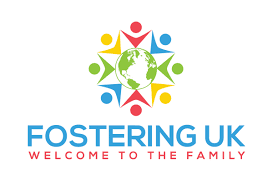Various difficulties for Foster Families
According to the UK (UK fostering agency) or other local fostering agencies, while some parents consciously take on the role of foster parents, some families unwittingly do so when a relative cannot live with their birth parents.
Foster kid rearing and biological child rearing share many similarities. Foster children need organization, discipline, love, and guidance just like any other child. In addition, they have extracurricular activities, schoolwork, and friends.
Foster kid raising, meanwhile, comes with some particular difficulties. Foster parents must be aware of the difficulties their foster children may encounter in order to support their growth.
Obtaining a License
Foster parents must complete a difficult licensing procedure that differs from state to state. It consists of reference checks, house inspections, home studies, and background checks. Homes must meet safety requirements and must pass a fire marshal inspection. If certain requirements aren't met, a home may require repairs, such as new windows or railings.
Uncertainty
Due to the uncertainty surrounding a child's living status, foster families frequently struggle to make long-term plans. Despite the fact that this process usually takes many months or even years, about 51% of foster children finally reunite with their primary carers. Other kids might be placed for adoption, moved closer to family, placed in a group home, or kept in foster care. Everyone in the family could experience stress as a result of the numerous court appearances, hearings, and modifications to the plan that occur throughout the process. Foster parents frequently have to respond to kids' difficult questions like "Will I be adopted?" and "When may I live with my mother again."
Visiting the birth parents
Children in foster care are allowed to see their biological parents or siblings, and they could one day be reunited with them. These meetings could occur at the birth family's house or in a safe, neutral setting. Routines of the foster family may be disturbed by the visiting schedule, and some foster families may have to put up with sporadic visits. Foster parents may also need to support children as they manage the emotional ups and downs of unpleasant encounters and frequently abrupt scheduling adjustments for visitation.
Rules and Regulations
State-specific regulations on foster care services can be burdensome for some families and differ widely. Children in foster care, for instance, could only be permitted to attend approved childcare facilities and might not be permitted to board boats or stay the night at friends' houses. Lockable cabinets may also be required for the storage of alcohol and prescription medications. Foster kids can't visit someone else's home without a background check, and the guardian could ask for the parent's names and addresses. As a result, making last-minute playdate arrangements can be difficult, embarrassing for older kids, and perplexing for other families.
Obtaining the guardians' approval
Foster parents do not receive legal guardianship. As a result, people commonly find themselves unable to sign legal documents.
The state-appointed guardian's signature on papers for the doctor or simple permission for the child to go on a field trip may need the foster care provider to get in touch with the child.
On occasion, especially on weekends and late at night, it may be challenging to contact the guardian. As a result, simple things can seem difficult.
Uncountable Appointments
To meet the requirements of foster children who require specialized services including speech therapy, occupational therapy, medication management, and counseling, foster families may need flexible schedules. Additionally, driving children to and from all of their appointments may be expected of foster parents with full-time jobs, which can be challenging.
Issues with Behavior and Emotion
Foster children may have endured abuse or neglect, which has resulted in behavioral and emotional issues. To assist individuals in improving their ability to control their emotions and conduct, specific corrective measures or therapeutic interventions may be required. In order to deal with problems like violent behavior, ADHD, or reactive attachment disorder, some foster parents obtain specialized training.
Unknown history
Child protective services frequently have significant gaps in their understanding of a child's past, despite their best efforts. These include the birth mother's connection, trauma, and developmental, genetic, and pregnancy histories, to name a few. Adults could be uninformed of a child's background of domestic violence, sexual assault, physical abuse, or neglect. It's possible that some physical, emotional, developmental, or health issues won't manifest themselves until a child has lived in a foster family for a sizable amount of time.
Saying goodbye
Due to frequent transitions and changes in placement, foster families who take in multiple foster children may frequently encounter disruptions to their family life. It could be traumatic for the entire family if foster parents are unaware of what happens to a child after they are no longer in their care. Foster families may experience significant burnout, therefore everyone needs to focus on their own mental health while managing their emotions.




Comments
Post a Comment